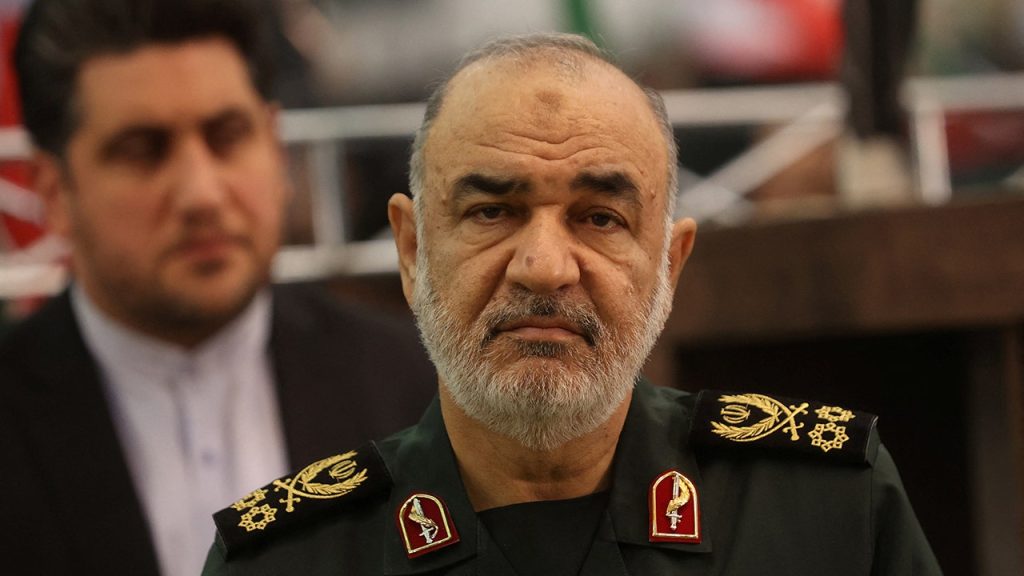In a significant escalation of tensions in the Middle East, Iranian military leaders have issued stark warnings following a series of targeted U.S. military strikes against Houthi militants in Yemen. This action, ordered by President Donald Trump, comes amid increasing hostilities impacting global maritime navigation and regional stability. Iranian officials, including General Hossein Salami, the commander of the Islamic Revolutionary Guard Corps, have promised a “decisive and destructive” response to perceived threats, signaling a potentially volatile situation in the region.
| Article Subheadings |
|---|
| 1) Overview of U.S. Military Actions Against Houthis |
| 2) Iran’s Response and Threats |
| 3) Impacts on International Maritime Security |
| 4) Reactions from the Houthis |
| 5) Future Implications for U.S.-Iran Relations |
Overview of U.S. Military Actions Against Houthis
On March 15, U.S. Central Command announced the initiation of targeted military operations against Iranian-backed Houthi forces in Yemen. This decision followed an uptick in Houthi attacks on U.S. naval assets in the region, including drone strikes and missile launches aimed at commercial vessels. President Donald Trump stated via social media that he had authorized these strikes after the Houthis launched repeated assaults that disrupted maritime trade and endangered lives on the high seas. The President emphasized that these military operations aim to restore freedom of navigation in critical waterways, asserting the necessity of U.S. military presence to deter threats.
Iran’s Response and Threats
In direct response to the U.S. military actions, General Hossein Salami declared Iran would retaliate “decisively and destructively” if the threats against Iranian interests continued. Salami’s statements illustrate the charged environment, as the Iranian military posture appears increasingly aggressive. He insisted that Iran would demonstrate its military capabilities openly rather than retreat into defensiveness, implying a readiness to engage in a broader military confrontation if provoked. This position highlights Iran’s intent to maintain its regional influence while deterring U.S. military operations that it perceives as hostile.
Impacts on International Maritime Security
The ongoing conflict and military strikes have raised alarms about the security of maritime routes that are vital to global trade. The Red Sea, Suez Canal, and Gulf of Aden are crucial for international shipping, and disruptions can have far-reaching economic consequences. The United States has emphasized that its military actions are aimed at securing these transit points. President Trump noted that U.S. economic interests and the safety of commercial vessels have been under constant threat from Houthi actions, which have impacted shipping lanes for over a year. With U.S. naval vessels engaging in active defense against Houthi missile threats, the maritime industry now faces a precarious situation that could lead shipping companies to reconsider routes.
Reactions from the Houthis
The Houthi leadership has responded aggressively to the U.S. strikes. Abdul-Malik al-Houthi, the leader of the Houthis, stated that they will escalate their military responses to the airstrikes, which they claim have resulted in significant casualties. Reports from Houthi sources suggest that U.S. strikes have killed at least 53 individuals and injured around 100. Al-Houthi emphasized their commitment to retaliate against U.S. military assets, including targeting aircraft carriers and warships. This clearly indicates that the Houthis are prepared for disruptive measures as a counter-response to U.S. military aggression.
Future Implications for U.S.-Iran Relations
The current military exchanges between the United States and Iran-backed forces could have long-term implications for diplomatic relations and security dynamics in the region. Analysts suggest that unless diplomatic dialogues are initiated, the cycle of retaliation may escalate further, complicating any effort towards a peaceful resolution. The U.S. Defense Secretary has noted that the military campaign will be unrelenting until the Houthis cease their attacks. This raises concerns about the potential for expanded conflict involving regional allies. As tensions mount, the prospect for future negotiations appears bleak, with both sides entrenching their positions. The need for international diplomatic mediation to de-escalate tensions may become increasingly urgent as each party sees little incentive to back down.
| No. | Key Points |
|---|---|
| 1 | The U.S. initiated military actions against Houthi targets in Yemen to protect maritime interests. |
| 2 | Iran warned of severe retaliation against the U.S. and its allies following these strikes. |
| 3 | The conflict poses significant risks for international shipping and maritime security. |
| 4 | The Houthis have pledged to escalate their military responses to American actions. |
| 5 | The ongoing tensions between the U.S. and Iran may jeopardize future diplomatic efforts in the region. |
Summary
The heightened military confrontations between the United States and Iranian-backed Houthi forces signal a dangerous escalation in the Middle East. With both sides poised for further actions, the potential for increased regional conflict looms large. As international interests and safety are threatened, the urgency for diplomatic negotiations to de-escalate the situation becomes increasingly pressing. Absent a constructive dialogue, the region may see a prolonged cycle of violence that could impact global stability.
Frequently Asked Questions
Question: What triggered the recent U.S. military actions in Yemen?
The U.S. military actions were triggered by a series of Houthi attacks on U.S. naval vessels and commercial shipping routes, prompting President Trump to order retaliatory strikes aimed at protecting American interests.
Question: How has Iran responded to the U.S. military strikes?
Iran has responded with warnings of decisive retaliation against U.S. forces, with military leaders emphasizing their willingness to escalate if threats persist.
Question: What are the implications of this conflict for global trade?
The conflict endangers key maritime shipping routes, particularly in the Red Sea, potentially disrupting international trade and leading to significant economic repercussions.


